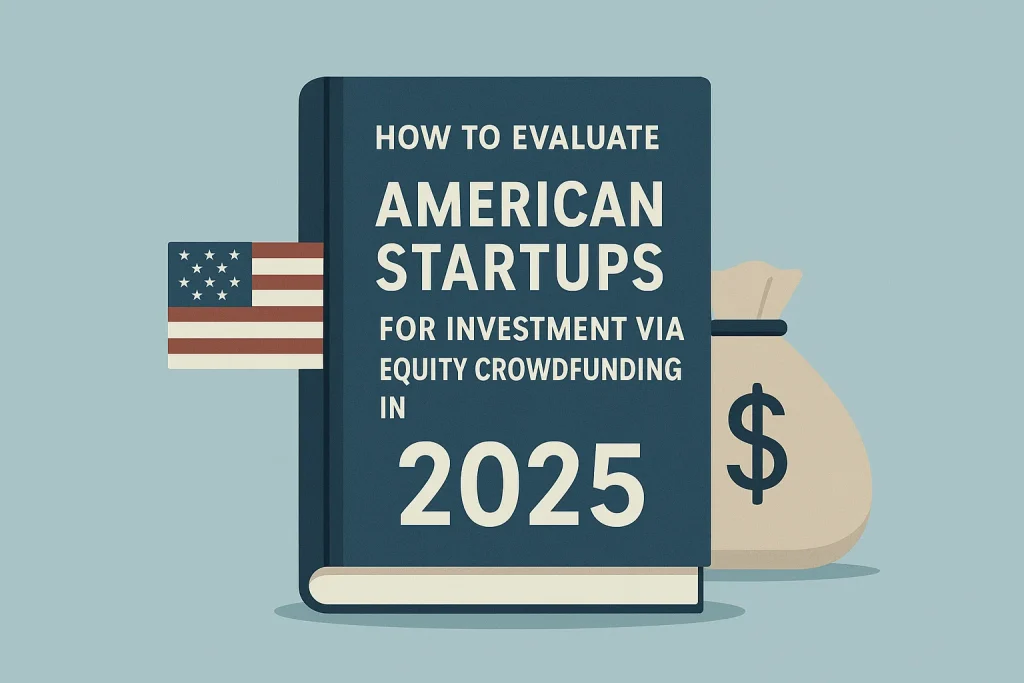Investments in American startups have become increasingly popular, especially through equity crowdfunding platforms. This method of financing opens the door for both novice and experienced investors to engage with innovative businesses at early stages.
Anúncios
Although the potential rewards can be significant, evaluating these ventures requires thorough research and diligence. Understanding the key aspects of a startup, from its team to its market potential, is paramount. These insights can lead to informed decision-making that enhances the likelihood of successful investments and returns.
Understanding the startup environment in 2025

As we approach 2025, the startup ecosystem evolves rapidly, influenced by technological advancements and shifting market demands. Investors must keep abreast of these changes to make informed decisions. Evaluating startups involves analyzing several factors, including the uniqueness of a product or service, the viability of business plans, and the potential for scalability.
The importance of leadership and vision cannot be overstated in evaluating startup potential. A competent leadership team is often the driving force behind a successful company. Assessing the backgrounds, experiences, and track records of founders and key personnel provides valuable insights into a startup’s potential.
Diving deeper into market analysis and competitive edge
Conducting a market analysis is an essential step in evaluating startups. This entails understanding the target audience, assessing market size, and identifying competition. A startup’s competitive edge can be defined by its ability to innovate or offer superior value to customers.
A startup’s financial health and funding history are indicative of its operational efficiency and appeal to investors. Scrutinizing financial statements, cash flow, and burn rate provides an understanding of the company’s fiscal footing. Additionally, analyzing previous funding rounds offers insights into investor confidence and valuation trends.
Assessing risk and reward balance
Equity crowdfunding requires investors to assess the delicate balance between risk and reward. While the allure of high returns is compelling, it is vital to recognize the inherent risks of investing in early-stage enterprises. Diversifying investments across various industries and startups can mitigate risk.
By backing several promising ventures, investors spread potential outcomes, increasing the likelihood of hitting a high-return investment. Additionally, understanding broader economic factors that influence startup success is crucial for evaluating potential rewards effectively.
Practical steps for informed decision-making
Pragmatic approaches to evaluating startups include conducting due diligence thoroughly. This involves scrutinizing all available information, engaging in discussions with company leadership, and seeking insights from industry experts. Participating in crowdfunding platform forums and engaging with community members can also offer valuable perspectives.
Adopting a disciplined approach to research and analysis enhances decision-making, allowing investors to make selections based on solid evidence rather than speculation. Ultimately, educated decisions increase the potential for rewarding investment outcomes.
Final thoughts on investing through equity crowdfunding
Investment in startups via equity crowdfunding is an exciting avenue for forging connections with the next wave of innovators. However, successful engagement requires meticulous evaluation of opportunities. Understanding the startup landscape, the characteristics of promising ventures, and the balance of risk and reward are vital components of an effective investment strategy.
By adopting thoughtful, informed approaches to decision-making, investors can capitalize on the thriving startup ecosystem in 2025, fostering both personal financial growth and the broader entrepreneurial landscape. As the platform for new ideas and innovations expands, there’s never been a more crucial time to refine evaluation techniques.


